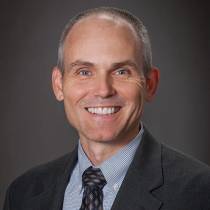
Phil Redmond is the Endowment's Director of Child & Family Well-Being program area.
My aging mother requires around the clock care. It’s not what mom wanted, but it’s what she needs. Fortunately, my sister and I can assist her in this new phase of her life. We had to seek, find and ask for the help we needed for our mom to meet her needs. It’s been a time of tears, frustration, harsh words and difficult conversations, but our experience is not unique. It’s a journey that many families share, including the uncertainty of where or when the journey will end.
Intuitively, we know that everyone needs and benefits from family. But where do you go when your family needs support? This is an important question because irrespective of your family income, composition, race or geographic location, all families will need some kind of support at some point from somebody. Emotionally, financially, or socially.
Families can turn to informal support like extended family, friends, neighbors or faith institutions. There are formal supports such as community-based organizations, public agencies and for-profit businesses. But the myriad of informal and formal supports can be overwhelming, even paralyzing. The first step requires courage! We must be brave enough to ask and, in return, expect that others will not judge, criticize or stigmatize us for asking. And the response to our request needs more than someone who simply connects us to a helpline! For instance, my sister and I talked to friends and family members who offered specific advice and recommendations based on their lived experiences regarding medications, placements, and healthcare providers.
Kin caregivers are a great example of family support. This includes grandparents, aunts, uncles and others who assume responsibility for a grandchild, niece, nephew, or other child because the biological or adoptive family cannot or will not support the child. However, kin caregivers, unlike foster parents, receive very little financial support, and often little emotional or social support, when they take on this responsibility. Even though kin caregivers are often senior citizens on fixed incomes that barely cover their own needs, they provide critical family support to these children. Without kin caregivers, these children often find themselves enmeshed in the child welfare system. And often health care providers and social service agencies have barriers that make it difficult for kin caregivers to access the educational, social and healthcare services for the child.
As we recognize February as Family Support Awareness month, The Duke Endowment urges our policymakers, decisionmakers and other leaders to find ways to support kin caregivers. The North Carolina Assembly passed Senate Bill 20 that provides some financial support for kin caregivers but there is more we could do. Let’s adopt and scale kinship navigation and support programs like HALOS in Charleston, S.C., that offer mutual-support groups, material supports and other services for kin families, or require our social services agencies to expedite safe, quality and appropriate licensing of kin caregivers so that they can be compensated, as we do foster parents. We need expanded access to resource hubs like the ones the South Carolina Department of Social Services is exploring, which can provide referrals, services, material and concrete supports and help families navigate a complex educational, healthcare and social services systems. We need a comprehensive array of services for kin caregivers based on their needs and preferences for support.
Over the next several months, the Endowment plans to elevate the issues facing kin families and share potential solutions through our various communication platforms. It’s my hope that those families, like my own, find the support they need to keep caring for vulnerable loved ones.
For additional information about Family Support Awareness month resources available to families, visit Prevent Child Abuse North Carolina or Children’s Trust.



